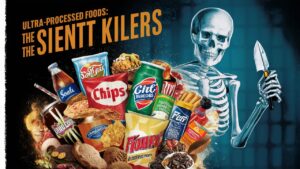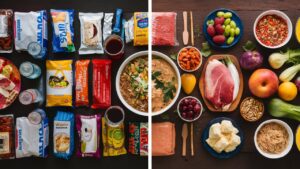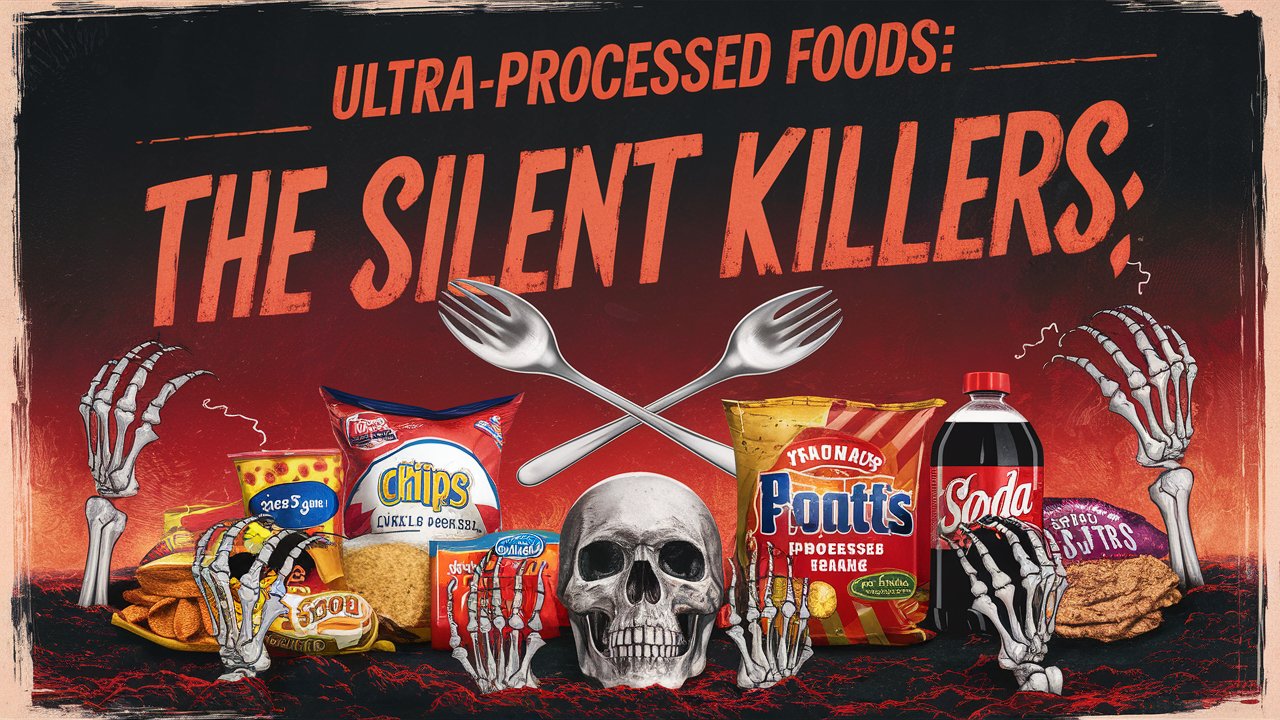Here Are the Ultra-Processed Foods You Most Need to Avoid, According to a 30-Year Study

We’ve all heard the term “ultra-processed foods,” but do we really know what it means? These are the foods that dominate supermarket shelves, tempt us with their convenience, and often come with a long list of unpronounceable ingredients. But according to a comprehensive 30-year study, these foods are doing more harm than we might realize. So, let’s dive into what ultra-processed foods are, the risks they pose, and how we can avoid them for a healthier life.
What Are Ultra-Processed Foods?
Ultra-processed foods are industrial formulations typically made from ingredients that have been significantly altered from their original form. They often contain additives like preservatives, sweeteners, colorings, flavorings, and emulsifiers. Think of items like sugary drinks, packaged snacks, and ready-to-eat meals. These foods are designed to be hyper-palatable and convenient, but they often lack nutritional value.
The 30-Year Study: An Overview
A landmark study spanning three decades has shed light on the long-term health impacts of consuming ultra-processed foods. Researchers tracked the diets and health outcomes of thousands of individuals, uncovering a strong correlation between high intake of these foods and numerous health issues. The study’s findings are a wake-up call, emphasizing the need to rethink our food choices.
Health Risks Associated with Ultra-Processed Foods
Increased Risk of Obesity
One of the most alarming findings of the study is the link between ultra-processed foods and obesity. These foods are often high in calories, sugars, and unhealthy fats while being low in fiber and protein, leading to overeating and weight gain.
Heart Disease and Stroke
Consuming ultra-processed foods has been associated with a higher risk of heart disease and stroke. The high levels of salt, trans fats, and refined sugars can contribute to high blood pressure, cholesterol imbalances, and arterial damage.
Type 2 Diabetes
Regular consumption of ultra-processed foods increases the risk of developing type 2 diabetes. The refined sugars and carbohydrates in these foods cause rapid spikes in blood sugar levels, leading to insulin resistance over time.
Cancer
Emerging research suggests that certain additives and preservatives found in ultra-processed foods may increase the risk of cancer. This includes substances like nitrates in processed meats and artificial sweeteners in diet sodas.
Common Ultra-Processed Foods to Avoid

Sugary Drinks
Sugary drinks, including sodas, energy drinks, and sweetened teas, are loaded with added sugars that offer no nutritional benefits. They contribute to weight gain and have been linked to an increased risk of various chronic diseases.
Healthier alternatives: opt for water, herbal teas, or homemade fruit-infused water to stay hydrated without the added sugar.
Packaged Snacks
Packaged snacks like chips, cookies, and candy bars are often high in unhealthy fats, sugars, and salt. They provide empty calories and can easily lead to overeating.
Tips for healthier snacking: Choose whole fruits, nuts, seeds, or homemade snacks like vegetable sticks with hummus.
Processed Meats
Processed meats such as bacon, sausages, and deli meats are high in sodium and preservatives. They have been linked to an increased risk of colorectal cancer and heart disease.
Better options for protein: Go for fresh, lean meats, poultry, fish, or plant-based proteins like beans and lentils.
Instant Noodles and Soups
Instant noodles and soups may be convenient, but they are often loaded with sodium, unhealthy fats, and artificial additives.
Homemade alternatives: Prepare quick soups with fresh vegetables and lean proteins, or make your own noodles using whole grains.
Frozen Meals
While frozen meals offer convenience, they typically contain high levels of sodium, preservatives, and unhealthy fats, and they lack fresh ingredients.
Preparing quick and healthy meals: Batch cook and freeze portions of homemade meals using fresh ingredients. This way, you have convenient options without the downsides.
Impact on Children and Adolescents
Children and adolescents are particularly vulnerable to the effects of ultra-processed foods. These foods can negatively impact their growth, development, and mental health. Encouraging healthy eating habits from a young age is crucial.
Tips for parents: Involve kids in meal planning and preparation, offer a variety of healthy foods, and limit the availability of ultra-processed options at home.
Economic and Social Factors
Ultra-processed foods are often more affordable and accessible, especially in low-income areas, creating a significant barrier to healthy eating. Addressing these disparities is essential for improving public health.
Addressing food deserts and economic barriers: Support community initiatives like farmers’ markets, urban gardening, and nutrition education programs to increase access to healthy foods.
Steps to Reduce Ultra-Processed Food Consumption
Reading Labels
Learning to read food labels can help you identify ultra-processed foods. Look for ingredients lists with whole foods and minimal additives.
Cooking at Home
Cooking at home allows you to control what goes into your meals. Use fresh, whole ingredients and try new recipes to keep things interesting.
Planning Meals
Meal planning can help you avoid the temptation of ultra-processed foods. Prepare a weekly menu, make a shopping list, and stick to it to ensure you have healthy options on hand.
The Role of Policy and Regulation
Governments and public health organizations play a crucial role in reducing the consumption of ultra-processed foods. Policies such as sugar taxes, clear labeling requirements, and public health campaigns can make a significant difference.
Success stories from around the world: Countries like Mexico and Chile have implemented successful measures to reduce the consumption of sugary drinks and junk food, leading to improved public health outcomes.
Conclusion
The evidence is clear: ultra-processed foods pose significant health risks. By understanding what these foods are and the dangers they bring, we can make informed choices to protect our health. Start by cutting down on sugary drinks, packaged snacks, processed meats, instant noodles, and frozen meals. Embrace whole foods, cook at home, and advocate for policies that promote healthier eating. Small changes can lead to big improvements in your well-being.
Immunity Booster: Diet and Lifestyle Changes for Better Health
Exercise for Sleep: A Simple Habit for a Lifetime of Restful Nights
8 Energy-Boosting Foods That Keep You Going !

3 thoughts on “Ultra-Processed Foods: The Silent Killers Revealed by a 30-Year Study”